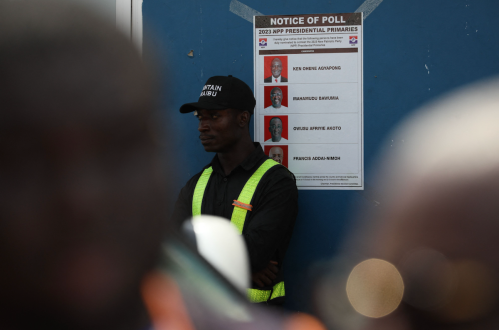I have been asked to synthesize some of the key issues that have arisen, and identify areas for further discussion in this session and beyond this workshop. A full report on the workshop will be prepared at the Brookings Institution and circulated to everyone who has attended.
In his opening statement, the Representative of the UN Secretary-Genera (RSG) on the Human Rights of Internally Displaced Persons, Walter Kälin, called for frank and constructive discussion that went beyond politics to understand and acknowledge the problems faced by internally displaced persons (IDPs) in Uganda today. He also called for a pragmatic and realistic approach to finding solutions. Our observation is that the RSG’s hopes in this regard have been more than fulfilled by this workshop. We have heard critical and at times passionate interventions. And there has been recognition from all parties that there is scope for improvement on the part of all of them, and a joint responsibility to ensure that it takes place.
As organizers as well as rapporteurs, we have been delighted with the level of participation at the workshop. Well over 100 people have attended, representing central and local government, donors and the international community, human rights institutions, academia, the media, civil society and IDPs themselves. We were honoured that several Ministers of States and senior Ministers were able to join us. There was representation from across Uganda, and we were particularly pleased to have been able to facilitate so many participants from the north of the country. In total we heard from some 15 speakers.
In his welcoming statement the RSG also explained the background and purpose of this workshop. It builds on a visit to Uganda in 2003 by his predecessor, Dr. Francis Deng, to discuss a draft of the national policy for internally displaced persons. Both Drs. Deng and Kalin have praised the policy, and it is clear that a number of important steps have been taken in its implementation. To name but a few: The national policy has been adopted; a structure of governance has been established from national through district to sub-county level; there has been significantly improved security in several areas, and a very considerable budget has been allocated to reconstruction and rehabilitation. This in turn has resulted in some tangible positive results – access has on the whole increased, there have been substantial return movements and there have been positive policy steps towards protecting children, for example.
At the same time, it has also become clear that the policy has not always been as effective as it should be. There are still up to two million IDPs in Uganda, and we have heard about the problems facing them, including security and an absence of law enforcement authorities, poor access to food and water, inadequate healthcare, poor education, an insufficient judicial system, problems with land and property rights, and a range of specific problems for women and children including gender-based violence.
Against this background, the focus for this workshop has been to identify the obstacles to implementing Uganda’s national policy, and how to overcome them and so ensure that the policy fufils its considerable potential.
The Brookings Institution is committed to quality, independence, and impact.
We are supported by a diverse array of funders. In line with our values and policies, each Brookings publication represents the sole views of its author(s).



Commentary
Concluding Statement
July 4, 2006